Living Abroad
for a Year or More
By Tim Leffel
1/20/2017 updated by TransitionsAbroad.com 11/6/2024
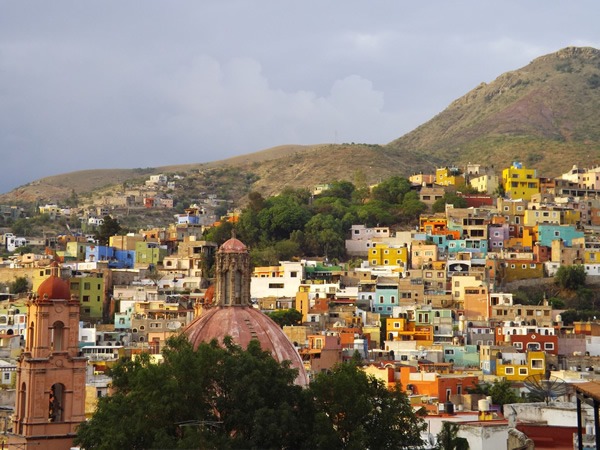 |
|
Guanajuato, Mexico is a colorful and lively town to spend as many years as possible.
|
Do the recent politics in U.S. elections and deep divisions in the country make you feel a need to escape and drive an urge to move? Do you feel an urge to relocate for four years or more until sanity prevails in the U.S.?
This may be much easier to pull off than you think, especially with a very strong dollar and the incredible increase in long-term digital nomad visas worldwide.
Here's where and how to check options out for the next year or more under various visa scenarios. Done right, any of these options can lead to lower monthly expenses, less expensive health care, and a better quality of life.
Let's start with the more traditional paths to move and live abroad and work our way up to the most recent opportunities.
Option 1 — Permanent Residency in Another Country
Start by ditching those plans for moving to Canada, as friendly as are the inhabitants. It’s cold and just as expensive, but more importantly, a tough place to get approval to become a permanent resident. If you are not an asylum seeker or refugee, you must have unique skills that are in demand and plenty of cash.
There are other cheaper and more welcoming options out there in 2024, including our southern neighbor, Mexico. If you can show income of at least $2,700 per month (plus $600 per dependent) it’s fairly inexpensive and straightforward to acquire a one-year residency permit that can easily be renewed for longer. After four years of temporary residency you can become permanent. If you have trouble proving that amount of income, some offices will accept proof of assets, especially if that’s in conjunction with social security or pension income.
There are similar programs with even lower income requirements in retirement favorites Nicaragua, Panama, Colombia, and Ecuador. Belize has higher prices, but is also welcoming. In some of these countries “retired” means being 45 or older. Even if you’re in your 20s though, you can get permanent residency with proof of income, though in some cases you may need to get help from a local attorney.
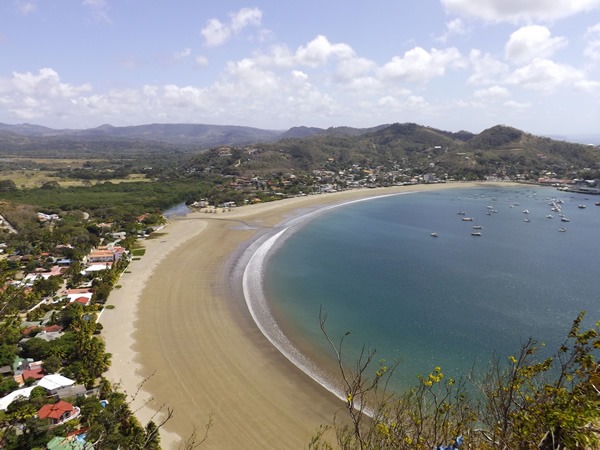 |
| One of many beaches that can be found by those wishing to move to popular and inexpensive Nicaragua, for a year or more. |
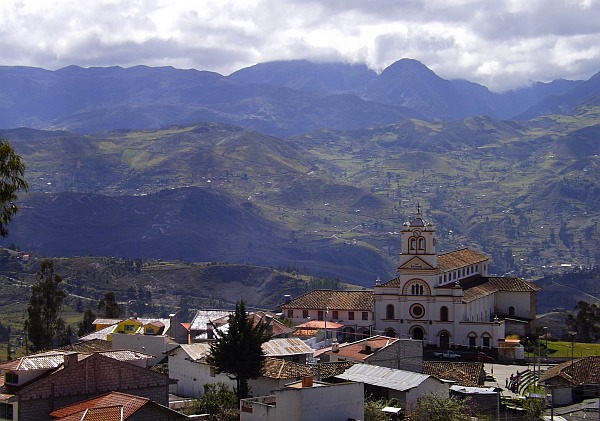 |
| A typical landscape in Ecuador. A great place to live abroad for a year or more. |
In Europe expect to apply from home, pay more, and get ready for lots of paperwork to attain residency. In some countries it is next to impossible unless you can claim ancestry for a country such as Ireland, Germany, Hundary, or Italy. The most welcoming options lately have been Spain, Portugal, and Estonia, though other U.S. expats have found a way through the bureaucracy to permanent residency in countries as varied as the Czech Republic, Bulgaria, and Romania — sometimes by moving their “headquarters” there and hiring one or two locals.
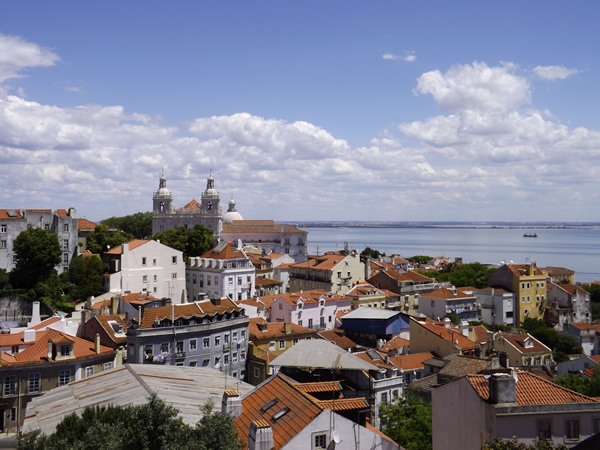 |
| Lisbon, Portugal. One of the least expensive countries in Europe where options still exist to live for the long term. |
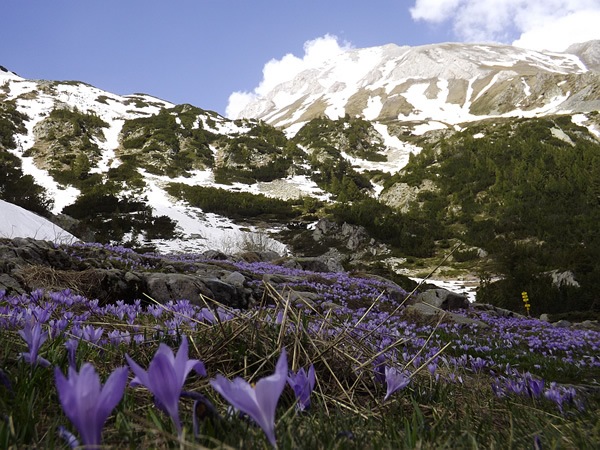 |
| Bulgaria, in Eastern Europe, is a popular destination for those wishing to move and live abroad. |
Lately things are looking up in Thailand. Anyone can now get a six-month visa if they apply from home and retirees can get one good for five years. Malaysia has a popular “My Second Home” program that grants residency after purchase of property.
You can apply for permanent residency in South Africa as a retiree at any age, if you can show monthly income of 37,000 rand, currently around $2,800 per month.
If you don’t mind living on a speck in the Pacific Ocean, Americans can live freely for the asking on islands in the Federated States of Micronesia, the Republic of the Marshall Islands, and the Republic of Palau.
Note that if you’re loaded, it opens up your options tremendously. You can buy your way into residency in Macedonia, Hungary, Malta, and some Caribbean islands like the Dominican Republic by putting money into the local economy, buying property, or buying bonds. This usually costs $200,000 to half a million dollars though.
Option 2 — Long-term Living Without Legal Residency
Many countries have very liberal tourist visa or business visa rules that can enable you to stay on for years or even indefinitely without ever applying for residency. Americans can now essentially get 10-year residency in India by securing a multi-entry visa. You just have to do border runs every 180 days — leaving the country then returning.
In Cambodia, you can live for years without residency by purchasing a business visa upon arrival and then renewing it each year. With this visa you can work or run a business there too — a rarity in most countries.
Tens of thousands of people stay long-term on tourist visas in Mexico, where you get 180 days for the asking upon arrival. Some make a border run and return immediately every six months or pick that time to go on vacation. You can also get 180 days in Peru, Panama, Jamaica, and Colombia (with extension) and they will allow you to leave and return. In Argentina you only get 90 days at a time, but many expats have lived there for years by just hopping to Uruguay or Chile every three months.
The most liberal of all is the country of Georgia: U.S., Canadian, Australian, and UK citizens can stay for 360 days on a tourist visa.
Become a Digital Nomad
If you don’t mind moving from one place to another every few months, or for up to a year or more, join backpackers, some highly skilled with endless possibilities if you have digital abilities or are willing to hustle while running a travel blog, and location independent workers who don’t have or want a permanent home. Then the world is your oyster. You can string together visits to multiple countries and, with the flurry of digital nomad visa options increasing by day worldwide, you can stay on the move for fairly long periods your whole life if you wish.
It may be hard to move to Canada or the UK permanently, but you can stay in either for 180 days if you can show the ability to support yourself and an onward ticket. As mentioned in the section above, some countries allow you to stay nearly half a year no questions asked and there are others, such as Fiji, where you can stay four months on a tourist visa.
The most common stay allowed is 90 days, so even if you only visited those then you’d have just four times a year to pack up the backpack and move on. The only real tricky thing to deal with is Europe, where you must leave the entire Schengen zone for at least three months between every 90-day stay, but here again, digital nomad visas from Portugal to Greece to Albania are available for up to a year. Otherwise you can normally just move on to a nearby country and start the clock over. You could essentially spend an entire four years in just Latin America or just Southeast Asia, for instance, if you plan it out right.
This last option opens up your possibilities and also lends itself to a lower budget. If you don’t have to worry about residency, you can just pick The World’s Cheapest Destinations and be frugal.
What You Gain by Living Abroad
The readers of Transitions Abroad know that living abroad offers tremendous opportunities for learning, cultural experience, and unique adventures. Many long-term travelers have said they learned more on the road than they did in four years of college — for a lot less money. Plus, when you live somewhere for months or years instead of just passing through, you gain a much deeper understanding of the place and its people. You may fire up new synapses in your brain by learning another language.
Moving out of the USA can lead to great health and monetary gains as well, however.
- The majority of countries around the world are less expensive than the United States, so your monthly expenses will decrease. A strong U.S. dollar means that premium destinations such as Italy are less expensive than normal, while less developed countries such as Nicaragua or Nepal are cheaper than they have ever been.
- Most countries in the world treat public health care as a given right and provide it at no cost or at reasonable rates. You can pay out of pocket for health care and spend less than what the average American does just on insurance and co-pays.
- If you choose your country or countries wisely, you can enjoy a much higher standard of living than you do now with lower costs. Most expatriates living in cheaper countries say they eat out more, attend more cultural events, have more free time, and can upgrade their life by hiring a maid, a masseuse, or a trainer on a regular basis.
Whatever you decide to do, it’s best not to make a permanent move before at least visiting your possible destination. You don’t want to go through the process of applying for residency, with all its paperwork and expense, just to find out the place sounded better for you on paper than it is in reality. Take a trial run, rent an apartment where the locals live, and you’ll know in a few weeks if it’s a good match.
Keep those absentee ballots rolling in no matter where you eventually decide to live. Even if you’re on the other side of the world, you can still make your voice heard when each election rolls around.
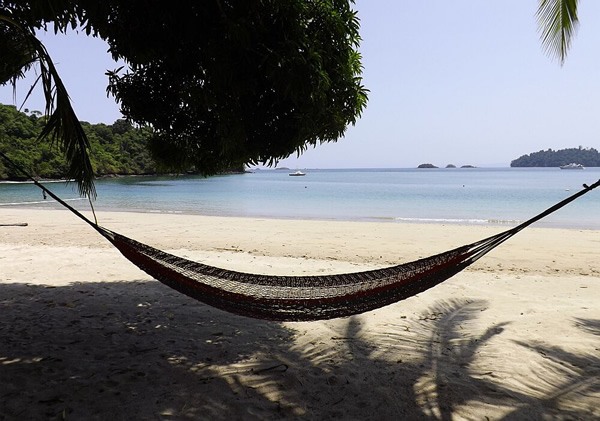 |
| A year or more in Panama now just doesn't seem like such a bad idea. |
Tim Leffel is author of several books, including A Better Life for Half the Price: How to prosper on less money in the cheapest places to live. See more on his Cheapest Destinations Blog.
|
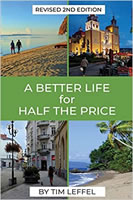 |
Related Topics |
| Tim
Leffel's Columns and Articles |
Related Articles |
 |
Why
a Virtual Job is the Best Job for Working
Abroad
In an extract from his fine new book,
"A Better Life at Half the Price," Leffel
explores the many options for virtual jobs
abroad, an increasingly popular combination
of work, long-term travel, and living abroad
offering incredible flexibility. |
 |
What You Need to Know to Move, Live and Work in Mexico
A long-term expatriate describes all that is involved in moving, finding work, and living in Mexico.
|
 |
Living
in Chiang Mai, Thailand
Expat life in Chiang Mai, Thailand, including snapshots of living, studying and working in a contest-winning article. |
 |
Living
in Panama
What you need to know to move and live abroad in Panama.
|
 |
9 Sensational Ways to Live Overseas
An experienced expat, author, and long-time traveler provides realistic examples of popular and interesting ways to live overseas, including some you may not have considered. |

|
Living in Paris: Practical Tips for Expats
An American expat and author, who has lived in the great city of Paris on multiple occasions, describes various ways you can live and thrive in the city during different phases of your life — from a student to retirement.
|
 |
An
Expat’s Budget in Beach Town Cambodia
...Among the many of the other appeals of living in
Cambodia, and one of its biggest draws, was the low
cost of living... Here, with relatively little work,
I can afford to eat, buy, and engage in all the activities
I desire... |
|
